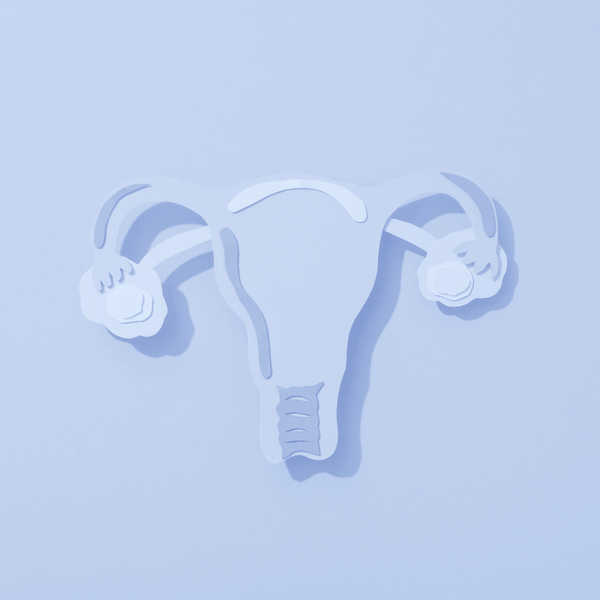Female IVF Foundation Support Pack
£116.75 Save £20.60

Article
Posted on
Are you preparing for IVF or looking for ways to enhance your chances of success? Join us for a free webinar on Thursday, 9th January, at 7pm (GMT) with fertility nutritionist Isabelle Obert, an expert with over 20 years of experience in supporting individuals and couples on their fertility journeys.
This interactive session will provide valuable insights into how nutrition, lifestyle, and supplements can play a vital role in IVF preparation. The webinar will conclude with a live Q&A, giving you the unique opportunity to ask your questions directly and gain valuable advice from a trusted expert.
Have specific questions about your IVF preparation? The session will end with a dedicated live Q&A, where Isabelle will provide expert advice tailored to your concerns. This is your chance to gain clarity and confidence in your journey.
Whether you’re just starting IVF or already on your journey, this webinar is designed for anyone looking to optimise their chances of success. Looking for further resources to support your IVF journey? Tap here.
📅 Date: Thursday, 9th January
🕖 Time: 7pm (GMT)
📍 Location: Online - Register below and a link to join will be sent via email
Spaces are limited, so don’t miss this opportunity to learn from a leading fertility expert and have your questions answered. Sign up now below to secure your spot and join us for this informative and interactive session.
Join Zita West Fertility Nutritionist Isabelle Obert for this free webinar on Thursday 9th January at 7pm (GMT)

Article

Article

Article
IUI, or intrauterine insemination, is a fertility treatment that involves placing washed and concentrated sperm directly into a woman's uterus around the time of ovulation.
FET, or frozen embryo transfer, is a type of IVF treatment that involves thawing and transferring frozen embryos into a woman's uterus.
IVF, or in vitro fertilization, is a fertility treatment that involves fertilizing an egg with sperm outside of the woman's body and then transferring the resulting embryo(s) into the woman's uterus.
The choice between IUI and IVF depends on individual circumstances, as both treatments have their advantages and disadvantages. IUI is a less invasive and less expensive option compared to IVF, and is often recommended as a first-line treatment for couples with unexplained infertility or mild male factor infertility. However, the success rate of IUI is lower compared to IVF, especially for couples with more severe infertility issues.
IVF, on the other hand, is a more complex and expensive treatment that involves stimulating the ovaries to produce multiple eggs, retrieving the eggs, fertilizing them with sperm in a laboratory dish, and transferring the resulting embryo(s) into the uterus. IVF is often recommended for couples with more severe infertility issues or for women with blocked fallopian tubes or low ovarian reserve.
Ultimately, the choice between IUI and IVF should be based on individual circumstances and the recommendations of a fertility specialist.
IVF involves an initial consultation, starting treatment and embryo transfer. This timeline will vary between individuals and not everyone’s IVF journey will look
the same. Before you go through IVF you will have various appointments with doctors which can include tests and investigations, the time these tests and investigations take will vary between individuals. IVF treatment involves suppressing natural hormone production, hormone treatment to boost egg quality, egg collection, mixing the eggs and sperm for fertilisation and finally, embryo transfer.
Generally one cycle of IVF will take between four and six weeks. It is important to discuss timelines with your GP or healthcare professional so you have a realistic timeframe.
There is no evidence currently that IVF can cause menopause however, the hormones used during IVF can cause symptoms similar to those experienced in perimenopause and menopause.
Whilst you are able to breastfeed during IVF, you will generally increase your chances of pregnancy if you stop breastfeeding prior to IVF.
Guidelines for IVF suggest that the success rate is higher if your BMI is between 19 and 30. If your BMI is over 30 you may wish to focus on weight management before you start IVF to increase your chances. Remember that BMI is only one metric for fertility – fertility is whole body event so is important to look at diet, exercise, mindset and supplements to increase your chances.
During IVF treatment you will be on many different protocols and it can be mentally and emotionally exhausting. We generally advise avoiding high intensity exercise as you want to grow as many eggs as you can. High intensity exercise will divert energy away from the ovaries where they need the blood for
oxygen, nutrients and antioxidants to grow as many eggs as possible.
You can also feel sore during IVF so you may feel more comfortable doing light exercise and gentle movements.
If you have any questions about our range, please feel free to contact us directly by clicking here.